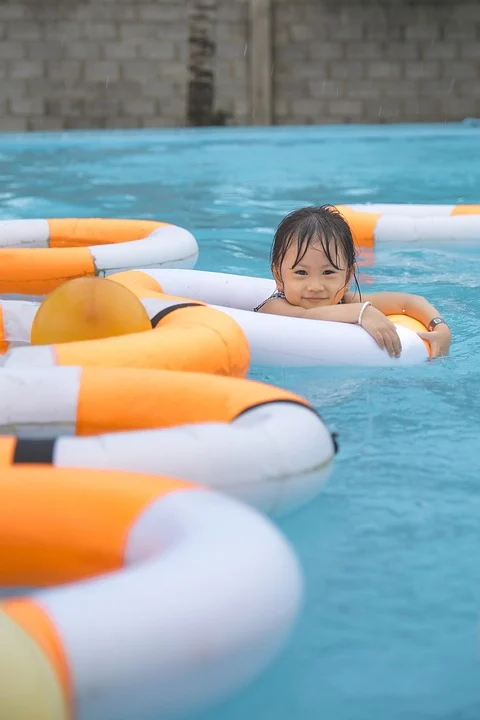The most Important Life Skills To Teach Kids

Raising kids is like trying to assemble furniture from IKEA: it takes patience, there are a lot of confusing parts, and the instruction manual never seems to cover everything. But one thing’s for sure: if we want our kids to succeed in life, we need to equip them with some essential life skills. Sure, math and reading are important, but knowing how to manage money, solve problems, and, you know, survive, is kind of a big deal too. So, here are the most important life skills to teach your kids, sprinkled with a little humor and a whole lot of love. In this article we will be looking at the top Life skills to teach kids. these skills that will help your child not only survive but thrive and build a life
1. Communication Skills
Why They’re Important: Communication is the superglue that holds our world together. Without it, we’re all just a bunch of people waving our arms around and hoping someone understands us. Kids who can express themselves clearly and listen to others without interrupting are ahead of the game. These are the future CEOs, diplomats, and…well, people who can order their own food at a restaurant without panicking.
How to Teach: Start by having real conversations with your kids—like actual back-and-forth, not just the usual “How was school?” “Fine” routine. Encourage them to express what they’re thinking and feeling (yes, even if it’s about how they think broccoli is the enemy). And remember, teaching them to listen is just as important. Try playing the “repeat what I just said” game—it’s both fun and, let’s be honest, sometimes necessary.
2. Decision-Making and Problem-Solving
Why They’re Important: Life is basically one big multiple-choice test, except the questions are way harder, and there’s no answer key. Teaching kids how to make good decisions and solve problems is like giving them a cheat sheet for life. It helps them figure out what to do when faced with choices like “Should I eat this week-old pizza?” or “How do I fix this toy I just broke?”
How to Teach: Start small. Let them decide what to wear (even if it means they choose a cape and rain boots for a sunny day). Talk them through the pros and cons of their choices and gently guide them when they’re about to make a decision that might end in disaster (like wearing said cape to school). For problem-solving, give them little challenges—like building a LEGO tower that won’t fall over—and let them figure it out, offering advice only when they’re about to throw the whole thing across the room.
3. Financial Literacy
Why It’s Important: Money might not buy happiness, but it sure can help avoid a lot of headaches. Kids who learn how to manage their money early on are less likely to call you from college asking how to use a credit card (spoiler alert: it’s not free money). Plus, they might actually grow up to be those magical unicorn adults who can budget and save without crying.
How to Teach: Start with the basics. Give them an allowance and let them decide how to spend it (while resisting the urge to intervene when they blow it all on candy). Teach them the art of saving for something big—like that ridiculously expensive toy they just have to have. As they get older, you can dive into more complicated stuff like how not to rack up debt buying things they don’t need (looking at you, impulse purchases).
4. Time Management
Why It’s Important: Time is a precious resource, and once it’s gone, you can’t get it back—kind of like the last slice of pizza. Teaching kids how to manage their time is like giving them a superpower. They’ll be able to juggle school, activities, and chill time without constantly feeling like the sky is falling.
How to Teach: Help them prioritize their tasks—whether it’s finishing homework before video games or figuring out how to cram in 10 episodes of their favorite show before bedtime (kidding…kind of). Show them how to use planners or apps to keep track of what needs to be done. And when they inevitably leave their science project until the night before it’s due, use it as a teaching moment (after the panic has subsided).
5. Emotional Intelligence
Why It’s Important: Emotions are like the weather—sometimes sunny, sometimes stormy, and occasionally, a total hurricane. Emotional intelligence is what helps kids navigate these ups and downs without spiraling into a full-blown tantrum every time something doesn’t go their way (wouldn’t that be nice?).
How to Teach: Encourage them to talk about their feelings, even the ones that make them want to punch a pillow. Help them name their emotions (“You’re not just mad, you’re frustrated because your brother took your toy…again”). Teach empathy by asking them how they think others might feel in certain situations. And when they’re dealing with tough emotions, remind them that it’s okay to feel all the feels—but that there are better ways to handle them than, say, screaming into the void.
6. Self-Care and Health Awareness
Why It’s Important: Self-care isn’t just for stressed-out adults—it’s a life skill everyone needs. Knowing how to take care of their bodies and minds helps kids grow up healthy and, hopefully, a little less stressed than the rest of us. Plus, it’s a lot easier to convince them to eat their veggies now than to undo years of bad habits later.
How to Teach: Start with the basics—brushing teeth, washing hands, and eating foods that didn’t come out of a vending machine. Get them involved in meal planning and cooking to make healthy eating more fun (or at least less of a battle). Talk about mental health, too—teach them that it’s okay to feel overwhelmed and show them ways to cope, like taking deep breaths or practicing mindfulness (a.k.a. sitting quietly for more than five seconds).
7. Social Skills and Manners
Why They’re Important: Good manners and social skills are like a VIP pass to getting along with others. Kids who know how to say “please” and “thank you,” share their toys, and not interrupt every conversation are generally more liked by their peers—and adults, too. Plus, these skills are pretty much non-negotiable if they ever want to have friends over without you cringing.
How to Teach: Start with the basics of politeness. Practice using “please,” “thank you,” and “excuse me” at home, so it becomes second nature. Teach them to take turns and share, even when they really, really don’t want to (because, let’s be real, nobody actually wants to share). Play out different social scenarios so they’re not caught off guard when they meet new people or have to navigate tricky situations like saying sorry when they’ve messed up.
8. Resilience and Adaptability
Why They’re Important: Life’s a rollercoaster, and sometimes it throws you for a loop. Teaching kids resilience and adaptability is like strapping them in with a seatbelt—they’ll still experience the highs and lows, but they’ll be a lot less likely to fall out of the ride. Resilient kids can bounce back from setbacks, while adaptable ones roll with the punches without losing their cool.
How to Teach: Encourage your child to keep going, even when things get tough (or when they’ve fallen flat on their face). Praise their effort, not just the end result, and remind them that failure is just a stepping stone to success (as annoying as that sounds in the moment). Share your own stories of bouncing back from failures—they’ll love hearing about how you accidentally sent an email to the wrong person or burned dinner that one time. And when life throws them a curveball, help them find ways to adjust and keep moving forward.
9. Basic Household Skills
Why They’re Important: Knowing how to run a household is kind of important—unless you plan on them living with you forever (not recommended). Cooking, cleaning, and doing laundry might not be the most exciting skills to learn, but they’re essential for surviving adulthood without constantly calling you for help. Plus, being able to make their own grilled cheese sandwich is a pretty big confidence booster.
How to Teach: Start by involving them in daily chores—yes, even if they complain. Teach them how to cook simple meals (scrambled eggs are a good start), do their own laundry (without turning everything pink), and clean up after themselves (because stepping on LEGO pieces is not fun). Make it fun by turning chores into games or competitions—who can fold the laundry the fastest? As they get older, introduce more responsibilities, like grocery shopping or meal planning, so they’re fully prepared to adult one day.
10. Critical Thinking and Creativity
Why They’re Important: Critical thinking and creativity are the secret sauce to innovation and problem-solving. Kids who can think outside the box are more likely to come up with genius solutions to problems, whether it’s figuring out how to fix a broken toy or inventing the next big thing. Plus, these skills make life a lot more interesting—they’re the difference between just following the instructions and building something totally unique.
How to Teach: Encourage curiosity by asking questions that don’t have easy answers (like “What would happen if…?”). Provide plenty of opportunities for creative play—whether it’s building, drawing, or making up stories. Challenge them with puzzles and games that require thinking outside the box. And most importantly, let them make mistakes and learn from them. Sometimes the best ideas come from the biggest messes.
Teaching kids life skills is a bit like planting a garden—it takes time, patience, and a lot of care, but the results are totally worth it. By equipping them with these essential skills, you’re setting them up for a future where they can thrive, not just survive. And who knows? They might even turn out to be those well-adjusted, independent adults we all aspire to be (fingers crossed!) To check out some of our other Articles many of which discuss topics like this as well as toys and play please click here.




